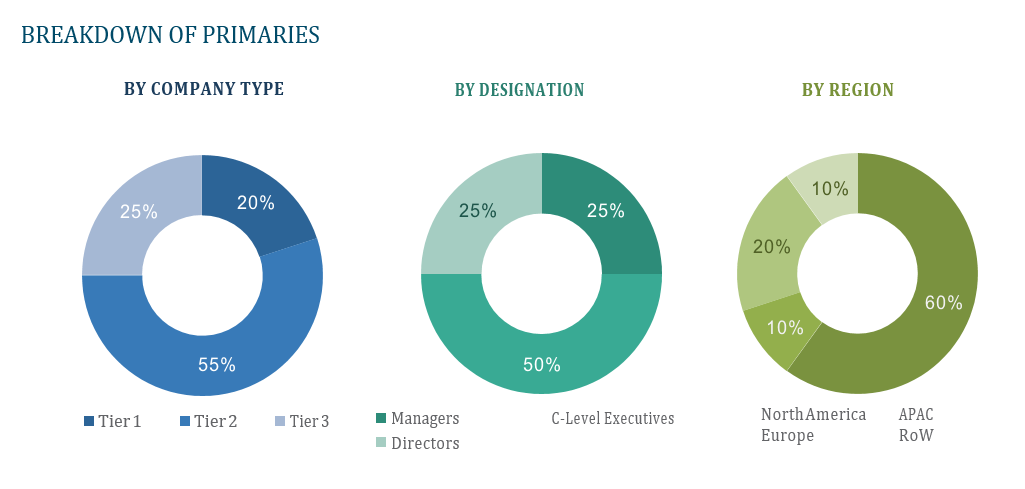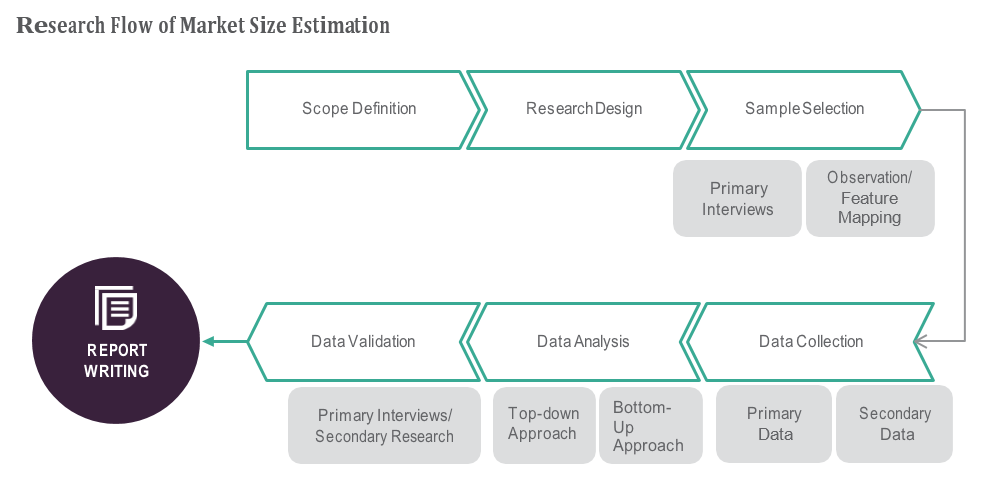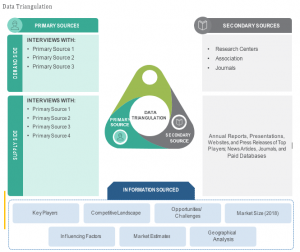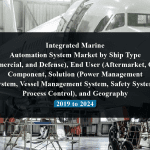OVERVIEW
The Simulators Market is currently valued at USD 18.5 billion in 2024 and will be growing at a CAGR of 7.1% over the forecast period to reach an estimated USD 26.1 billion in revenue in 2029. The simulators market encompasses a wide array of industries, ranging from aviation and automotive to healthcare and gaming. Simulators serve as invaluable tools for training, research, entertainment, and development purposes, providing realistic, immersive experiences without real-world risks or costs. Advanced technologies such as virtual reality (VR), augmented reality (AR), and artificial intelligence (AI) are increasingly integrated into simulators, enhancing their fidelity and effectiveness. With the growing emphasis on safety, efficiency, and experiential learning across sectors, the demand for simulators continues to surge, driving innovation and market expansion globally.
Firstly, the increasing focus on safety and efficiency across industries, particularly in aviation, automotive, and healthcare, propels the demand for realistic training environments provided by simulators. Secondly, advancements in technology, such as virtual reality (VR) and artificial intelligence (AI), continually enhance the capabilities and immersion of simulators, making them more effective for training and research purposes. Thirdly, the rising need for cost-effective training solutions, especially in sectors where real-world training can be prohibitively expensive or risky, contributes to the market expansion. Additionally, the growing demand for entertainment and gaming experiences, fueled by consumer interest in immersive virtual worlds, drives the adoption of simulators in the gaming industry. These drivers collectively fuel the steady growth and evolution of the simulators market across various sectors and applications.
Table of Content
Market Dynamics
Drivers:
Firstly, the increasing focus on safety and efficiency across industries, particularly in aviation, automotive, and healthcare, propels the demand for realistic training environments provided by simulators. Secondly, advancements in technology, such as virtual reality (VR) and artificial intelligence (AI), continually enhance the capabilities and immersion of simulators, making them more effective for training and research purposes. Thirdly, the rising need for cost-effective training solutions, especially in sectors where real-world training can be prohibitively expensive or risky, contributes to the market expansion. Additionally, the growing demand for entertainment and gaming experiences, fueled by consumer interest in immersive virtual worlds, drives the adoption of simulators in the gaming industry. These drivers collectively fuel the steady growth and evolution of the simulators market across various sectors and applications.
Key Offerings:
Key offerings in the simulators market include a diverse range of simulator systems tailored to specific industries and applications. These offerings encompass flight simulators for aviation training, driving simulators for automotive education and testing, medical simulators for healthcare professionals’ skill development, and military simulators for defense training purposes. Advanced technologies such as virtual reality (VR), augmented reality (AR), and artificial intelligence (AI) are integrated into these systems to enhance realism and effectiveness. Additionally, software solutions play a crucial role, providing customizable scenarios, analytics, and feedback mechanisms to optimize training outcomes. Manufacturers and service providers in the simulators market offer comprehensive solutions, including hardware, software, maintenance, and support services, to meet the diverse needs of their customers and ensure seamless integration and operation of simulator systems.
Restraints :
The high initial investment required for developing and implementing advanced simulator systems, which can deter smaller organizations or institutions with limited budgets from adopting these technologies. Additionally, the complexity of simulator systems and the need for specialized training to operate them effectively present barriers to entry for some potential users. Regulatory constraints and certification requirements, particularly in industries such as aviation and healthcare, impose stringent standards that simulator developers must meet, adding time and costs to the development process. Moreover, the rapid pace of technological advancement necessitates continuous upgrades and updates to maintain the relevance and competitiveness of simulator offerings, which can strain resources and pose logistical challenges for both manufacturers and users.
Regional Information:
• In North America, particularly the United States, the market is driven by a strong emphasis on technological innovation and a robust demand for simulation solutions across industries such as aviation, automotive, and defense. The presence of major players and leading research institutions further fuels market growth, with investments in advanced technologies like virtual reality (VR) and artificial intelligence (AI) driving innovation and market expansion.
• In Europe, countries like Germany and the UK are prominent players, benefiting from a thriving aerospace and automotive sector and stringent safety regulations that drive demand for high-fidelity training solutions.
• Asia-Pacific, led by countries such as China and India, is witnessing rapid growth fueled by increasing investments in infrastructure development, rising aviation and automotive sectors, and a growing focus on skill development and training.
Recent Developments:
• In May 2023, IncCAE Inc. secured a contract from General Dynamics Information Technology (GDIT) to support Flight School Training Support Services (FSTSS) at Fort Novosel (formerly Fort Rucker), Alabama. The contract is part of the USD 1.7 billion award to GDIT by the US Army Program Executive Office for Simulation, Training, and Instrumentation (PEO STRI) for simulation capabilities and training support services to prepare initial entry-level and graduate-level rotary wing flight training at Fort Novosel.
• In May 2022, Atlantic Airways and Thales entered into an agreement for the acquisition of a fully equipped AW139 Reality H Level D Full Flight Simulator. Positioned in the Faroe Islands, strategically located in the North Atlantic, this simulator will serve as a central hub for advanced AW139 training, contributing to enhanced safety in global helicopter operations. The Atlantic Airways Aviation Academy will leverage this cutting-edge simulator to provide comprehensive training services, covering initial type rating, recurrent training, and proficiency checks for both Visual Flight Rules (VFR) and Instrument Flight Rules (IFR). This facility will play a crucial role in assisting pilots in obtaining the necessary certification to operate the AW139 under EASA approval.
Key Players:
CAE Inc., L3Harris Technologies, FlightSafety International, Thales Group, Rockwell Collins, Lockheed Martin Corporation, Boeing Company, Airbus SE, BAE Systems plc, and Textron Inc.
– The Simulators Market is expected to reach an estimated value of USD 5.62 billion in revenue by 2029.
2) What is the estimated CAGR of the Simulators Market over the 2024 to 2029 forecast period?
– The CAGR is estimated to be 15.1% for the Simulators Market over the 2024 to 2029.
3) Who are the key players in the Simulators Market ?
– CAE Inc., L3Harris Technologies, FlightSafety International, Thales Group, Rockwell Collins, Lockheed Martin Corporation, Boeing Company, Airbus SE, BAE Systems plc, and Textron Inc.
4) What are the drivers for the Simulators Market ?
– The demand for simulators in industries like aviation, automotive, and healthcare is driven by safety and efficiency concerns, advancements in technology like VR and AI, cost-effective training solutions, and consumer interest in immersive virtual worlds. These factors contribute to the market’s steady growth across various sectors.
5) What are the restraints and challenges in the Simulators Market ?
– Advanced simulator systems face high initial investment, complexity, and specialized training, which can deter smaller organizations. Regulatory constraints and certification requirements add time and costs to development, while the rapid pace of technological advancement requires continuous upgrades, straining resources and posing logistical challenges.
6) What are the key applications and offerings of the Simulators Market ?
– The simulators market offers various systems for various industries, including aviation, automotive, healthcare, and defense training. These systems use advanced technologies like VR, AR, and AI, and software solutions for customization and optimization. Manufacturers and service providers provide comprehensive solutions, including hardware, software, maintenance, and support services.
7) Which region is expected to drive the market for the forecast period?
– North America is expected to have the highest market growth from 2024 to 2029
Why Choose Us?
Insights into Market Trends: Global Market Studies reports provide valuable insights into market trends, including market size, segmentation, growth drivers, and market dynamics. This information helps clients make strategic decisions, such as product development, market positioning, and marketing strategies.
Competitor Analysis: Our reports provide detailed information about competitors, including their market share, product offerings, pricing, and competitive strategies. This data can be used to inform competitive strategies and to identify opportunities for growth and expansion.
Industry Forecasts: Our reports provide industry forecasts, which will inform your business strategies, such as investment decisions, production planning, and workforce planning. These forecasts can help you to prepare for future trends and to take advantage of growth opportunities.
Access to Industry Experts: Our solutions include contributions from industry experts, including analysts, consultants, and subject matter experts. This access to expert insights can be valuable for you to understand the market.
Time and Cost Savings: Our team at Global Market Studies can save you time and reduce the cost of conducting market research by providing comprehensive and up-to-date information in a single report, avoiding the need for additional market research efforts.












